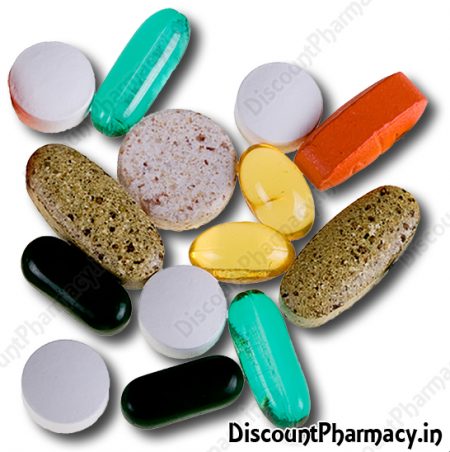DiscountPharmacy.in – is the largest online manual in the world of pharmacy. Choose medication’s information guides (Consumer Medicine Information) sorted by popularity below or sorted by type (right menu) and read annotation, how to take these medications, precautions, drug interactions, side effects, etc.
Medications
Medications (also referred to as pharmaceutical drugs, pharmaceuticals, pharmaceutical preparations, pharmaceutical products, medicinal products, medicines, medicaments, or simply drugs) are the drugs used to diagnose, cure, treat, or prevent disease. Drug therapy (pharmacotherapy) is an important part of the medical field and relies on the science of pharmacology for continual advancement and on pharmacy for appropriate management.
Drugs are classified in various ways. One of the key divisions is by level of control, which distinguishes prescription drugs (those that a pharmacist dispenses only on the order of a physician, physician assistant, or qualified nurse) from over-the-counter drugs (those that consumers can order for themselves). Another key distinction is between traditional small molecule drugs, usually derived from chemical synthesis, and biopharmaceuticals, which include recombinant proteins, vaccines, blood products used therapeutically (such as IVIG), gene therapy, and cell therapy (for instance, stem cell therapies). Other ways to classify medicines are by mode of action, route of administration, biological system affected, or therapeutic effects. An elaborate and widely used classification system is the Anatomical Therapeutic Chemical Classification System (ATC system). The World Health Organization keeps a list of essential medicines…
Diseases
A disease is a particular abnormal condition, a disorder of a structure or function, that affects part or all of an organism. The causal study of disease is called pathology. Disease is often construed as a medical condition associated with specific symptoms and signs.Â
It may be caused by factors originally from an external source, such as infectious disease, or it may be caused by internal dysfunctions, such as autoimmune diseases. Diseases usually affect people not only physically, but also emotionally, as contracting and living with a disease can alter one’s perspective on life, and one’s personality.
The term disease broadly refers to any condition that impairs the normal functioning of the body. For this reason, diseases are associated with dysfunctioning of the body’s normal homeostatic process.
Commonly, the term disease is used to refer specifically to infectious diseases, which are clinically evident diseases that result from the presence of pathogenic microbial agents, including viruses, bacteria, fungi, protozoa, multicellular organisms, and aberrant proteins known as prions. An infection that does not and will not produce clinically evident impairment of normal functioning, such as the presence of the normal bacteria and yeasts in the gut, or of a passenger virus, is not considered a disease.
